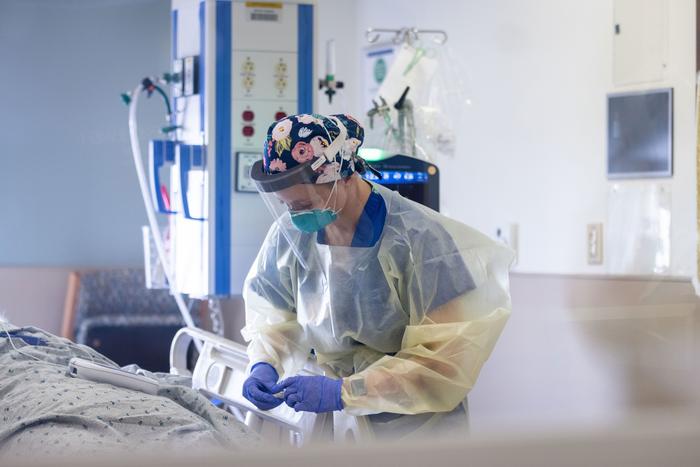As the COVID-19 pandemic spread across the globe, scientists raced to identify who was most at risk of getting seriously ill. A new study by researchers at Washington University School of Medicine in St. Louis shows that cannabis users are nearly twice as likely as non-users to need hospitalization and intensive care when infected with the virus.
The study, published in JAMA Network Open, looked at the health records of over 72,000 people treated for COVID-19 at health centers in the Midwest during the first two years of the pandemic. They found that people who used cannabis at least once in the year before getting COVID-19 had a much higher risk of severe illness compared to those who didn’t use the drug. This increased risk was similar to that seen in cigarette smokers.
Cannabis Use as Risky as Smoking for COVID-19 Hospitalization
“There’s this sense among the public that cannabis is safe to use, that it’s not as bad for your health as smoking or drinking, that it may even be good for you,” said senior author Li-Shiun Chen, MD, DSc, a professor of psychiatry. “What we found is that cannabis use is not harmless in the context of COVID-19. People who reported yes to current cannabis use, at any frequency, were more likely to require hospitalization and intensive care than those who did not use cannabis.”
While cannabis users had a higher risk of severe COVID-19, the study did not find an increased risk of death compared to non-users. In contrast, cigarette smokers were significantly more likely to die from the virus.
More Research Needed on Cannabis and Viral Infections
The researchers note that the study was not designed to determine why cannabis might worsen COVID-19 outcomes. One possibility is that inhaling marijuana smoke damages the lungs and makes them more susceptible to infection, similar to the effects of tobacco smoke. Cannabis may also weaken the immune system’s ability to fight off viruses, regardless of how it’s consumed.
“We just don’t know whether edibles are safer,” said first author Nicholas Griffith, MD, a medical resident at Washington University. “People were asked a yes-or-no question: ‘Have you used cannabis in the past year?’ That gave us enough information to establish that if you use cannabis, your health-care journey will be different, but we can’t know how much cannabis you have to use, or whether it makes a difference whether you smoke it or eat edibles. Those are questions we’d really like the answers to. I hope this study opens the door to more research on the health effects of cannabis.”
The findings contradict some previous research suggesting that cannabis may help fight off viral diseases like COVID-19. However, most of that evidence comes from studies in cells or animals, while this new study looked at real-world health data from a large number of patients over an extended period.
“Most of the evidence suggesting that cannabis is good for you comes from studies in cells or animals,” Chen said. “The advantage of our study is that it is in people and uses real-world health-care data collected across multiple sites over an extended time period. All the outcomes were verified: hospitalization, ICU stay, death. Using this data set, we were able to confirm the well-established effects of smoking, which suggests that the data are reliable.”


